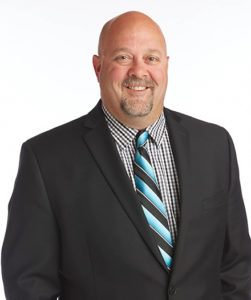Births, deaths, kids off to college, marriages, divorces, job loss, medical incapacity, etc.…all lead to significant changes in family relations. If parents disapprove of a romantic interest, spouse or friend of their children, they can change the makeup of an estate plan to reflect their opinions. Don’t dismiss how a strained family relationship can affect who gets what in an estate. Or, flip the situation. A new relationship or friendship in a parent’s life could cause an inheritance shakeup.
Most parents desire to be fair when it comes to inheritances, but financial professionals like myself counsel them to make a wise decision versus a “fair” one. Why are we against fairness? Because fairness doesn’t exist. First, there are practical reasons why dividing an asset such as a vacation home, farm or business into equal portions just isn’t possible. Second, parents need to consider which of their children is prepared to manage an inheritance, usually informed by how well each has handled their own finances. If you are expecting an inheritance based on equal shares, think about the practical issues and the relational ones.
It’s a fact: the latter decades of our lives bring about more medical bills. Estates that have taken decades of planning and accumulation could be swallowed up by bills for hospital stays, drugs and long-term care costs. Of the total lifetime expenditures on medical care, the average American spends half of that figure after the age of 65, according to the National Institutes of Health*. In other words, we do about half of all medical spending in our lifetime in the last season of our lives. In probate proceedings, outstanding debts and creditors get paid first. Heirs get what is left over, and probate could make them wait for up to two years. A diminished inheritance due to unanticipated medical debt is a real possibility.
Most of us have not made a plan for paying our final expenses, such as funeral costs. This means that either an estate or family members will have to pay those bills. With the average cost of a funeral running between $10,000 to $15,000, that’s another bite out of an inheritance. Add that to medical bills, credit card debt, estate taxes and probate costs, and an inheritance can shrink to an unintended and disappointing sum.
Ultimately, the best advice I can give someone is, “Control what is within your ability to control.” Knowing the future is impossible, but most people can exercise positive control over their current finances, health and relationships.
Communication is huge. Don’t be afraid to talk about estate planning and money issues with family members. And don’t forget the importance of life insurance to securing an inheritance and paying for final expenses. Contact your local Catholic United Representative to get a quote on a life insurance policy that fits your situation and budget.
Wealth is a mindset that combines the material and spiritual — rooted in knowledge, wisdom and trust
by John Tetzloff
Advanced Case Specialist
jtetzloff@catholicunited.org

Catholic United Financial and John Tetzloff are not permitted to give tax or legal advice. The information given is based on our understanding and interpretation of laws and regulations currently in effect. You may wish to consult your personal tax or legal advisor with questions about your specific situation. *Source: https://www.ncbi.nlm.nih.gov/pmc/articles/PMC1361028/